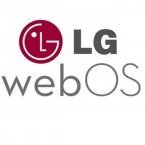-
Similar Topics
-
By News Reporter
Collaboration Spans On-Device AI, Future Mobility and More
SEOUL, Nov. 12, 2024 — LG Electronics (LG) and Tenstorrent are pleased to announce an expanded collaboration, building on their initial chiplet project to develop System-on-Chips (SoCs) and systems for the global market. Through this partnership, LG aims to enhance its design and development capabilities for AI chips tailored to its products and services, aligning with its vision of “Affectionate Intelligence.” LG is dedicated to advancing AI-driven innovation, with a focus on enhancing its AI-powered home appliances and smart home solutions, as well as expanding its capabilities in future mobility and commercial applications.
Recognizing the critical role of high-performance AI semiconductors in implementing AI technology, LG plans to strengthen its in-house development capabilities while collaborating with leading global companies, including Tenstorrent, to boost its AI competitiveness.
Tenstorrent is renowned for its ability to design world-class high-performance computing (HPC) semiconductors using its RISC-V* IP (Ascalon) and AI IP (Tensix). Their IP is engineered to scale from milliwatts to megawatts, delivering exceptional efficiency and performance.
Recently, LG CEO William Cho met with Tenstorrent CEO Jim Keller at the LG Twin Towers in Yeouido, Seoul, to discuss strategic collaboration. The meeting was attended by key executives from each company, including LG’s CTO Kim Byoung-hoon and the head of the SoC Center, as well as Tenstorrent’s CCO David Bennett and VP of Automotive.
During their discussions, the two companies explored opportunities to leverage their intellectual properties, design assets and technologies, aiming to create synergies across various business areas including AI home appliances, smart home solutions, future mobility, and video processing solutions for the data center market. Both CEOs emphasized the importance of enhancing capabilities in next-generation system semiconductors, including RISC-V and chiplets, to navigate the rapidly evolving AI landscape. Additionally, Tenstorrent and LG are considering the establishment of a long-term internship program as part of their collaboration.
LG is committed to advancing its AI-related software and algorithm technologies to provide customers with products, platforms and services based on generative AI. This includes the development of AI chips to secure competitiveness in on-device AI technology.
“Tenstorrent is bringing the industry’s best AI and RISC-V technology to this collaboration,” said William Cho, CEO of LG Electronics. “We aim to deliver a new customer experience through our unique Affectionate Intelligence, focusing on personalized, caring and attentive solutions that better understand our customers and can provide tangible value.”
“LG has a strong SoC development organization and Tenstorrent is excited to continue to partner with them,” said Jim Keller, CEO of Tenstorrent. “Customers are looking for customizable solutions – our AI and RISC-V technology enables LG to own their silicon future.”
Meanwhile, LG has established a dedicated SoC R&D center specializing in system semiconductor design and development. The SoC Center excels in the design, development and verification of these chips, focusing on advancing high-performance SoCs using the chiplet technology. Chiplet technology integrates multiple chips into a single package and is gaining attention due to the rising demand for high-performance, low-power AI semiconductors.
The system chips used in LG’s key products have all been developed under the leadership of the SoC Center. LG’s proprietary AI chip for home appliances, “DQ-C,” and the “LG α (Alpha) 11 AI Processor” for OLED TVs have significantly strengthened the company’s leadership in the global AI appliance and premium TV markets.
As AI becomes increasingly pivotal in the industry, the importance of system chip design capabilities is growing across all business areas. LG is continuously enhancing its system semiconductor design capabilities and linking them with AI-related software and algorithm technologies to proactively prepare for the future. Ultimately, the goal is to provide Affectionate Intelligence solutions in all everyday spaces, offering a differentiated customer experience.
# # #
* RISC-V is an open-source instruction set architecture (ISA) based on reduced instruction set computing (RISC) principles, allowing for flexible and customizable processor designs.
link hidden, please login to view -
By News Reporter
LG is rooted in the philosophy of open innovation – an open approach to innovation and facilitating collaboration to create a better life for all. These collaborative partnerships involve LG affiliate companies and extend to government, universities and research labs, with the goal to establish an open ecosystem of innovation that will benefit and empower all involved.
Recently, the LG Toronto AI Lab welcomed 30 graduate students from various universities in South Korea to the
link hidden, please login to view (CARTE) at the University of Toronto. The event – initiated and organized by the Toronto AI Lab in collaboration with CARTE – brought these talented students together to explore applied research partnerships in Canada and introduce them to career opportunities at LG. Sponsored by the South Korean government and managed through the University of Toronto’s Faculty of Applied Science & Engineering, the 6-month CARTE program accommodates students from a wide range of disciplines, including technology, engineering, and the natural and mathematical sciences and aims to inspire students to leverage AI innovatively in their respective fields.
The selection for this program was competitive, drawing participants from among South Korea’s brightest. These selected students will engage in 10 industry projects, including three spearheaded by the LG Toronto AI Lab.
Kevin Ferreira, Senior Director and Head of the LG Toronto AI Lab, shared, “Our collaboration with the University of Toronto and the South Korean government on the CARTE program aims to enhance our research capabilities and strengthen our talent pool. This event enabled us to present the extensive work undertaken at the LG Toronto AI Lab to an exceptional group of Korean students, laying the groundwork for deeper research collaboration.”
Showcasing some of the Toronto AI Lab’s recent work, Manasa Bharadwaj, Senior AI Research Scientist, presented on behalf of the LG Toronto AI Lab’s Conversational AI team and their research into Responsible Conversational AI. The talk covered the motivation, technical details and results of the team’s 2023 published research titled ‘COUNT’ and ‘GPT-Detox’. The two paraphrasing approaches leverage unlikelihood training and prompt-based approaches respectively to convert unsafe text into safe text.
Mathieu Tuli, AI Research Scientist, presented on the work that the LG Toronto AI Lab Digital Human team conducts, highlighting FlowFace, the team’s recent CVPR) 2024 accepted paper. The talk provided detail on why FlowFace is an important innovation for the community at large, and how it affects the rest of the Digital Human pipeline.
Thi Ha Kyaw, Staff AI Research Scientist, presented an introduction to quantum computing and quantum algorithms in general, and why quantum is worth pursuing in the current quantum utility era. He also presented his team’s recent result on super-exponential catastrophe of quantum algorithms in noisy quantum hardware.
During their time in the program, students will participate in graduate-level intensive courses in Machine Learning and AI, delivered by the University of Toronto’s Department of Mechanical & Industrial Engineering. They will also benefit from tailored AI support services provided by CARTE, including research and training in AI for academic and industry partners.
Furthermore, students will have the opportunity to attend several applied AI seminars at the University of Toronto and engage with AI and machine learning projects across various sectors, including industry, government, and non-profits. A dedicated workspace will also be available to them, fostering collaboration and allowing them to apply their knowledge and skills within Toronto’s thriving AI ecosystem.
The program will conclude in late June, where selected students will present their projects to industry partners, showcasing their achievements and the potential for future innovations in AI.
Contributed by LG Canada
# # #
-
By pivotCE
Sooo that was a really long time since a release, but
link hidden, please login to view are still around and active as ever! We have continued making updates and producing testing images. But a lot happened that resulted in us not putting out a proper release out in the past few years.
Those who have stayed in touch with the community will know there has been some turmoil with the closure of the webOS Nation forums last year. Things stabilised over the last year as people converged around the and made plans on the associated . Much of the old information from webOS Nation was preserved thanks to the and can still be accessed, if imperfectly. We have now set up a that largely replicates the old layout and is ready for fresh content.
If you are eager to find out what we’ve been working on and to try out the new release, read on…
The (Jenkins) builder infrastructure we had available previously decided to have a number of malfunctions, leading it to be no longer available to us. So for now we’re back to our own builders for building all the images, which isn’t great, but at least we’re still building and providing images! We are now using , which means newer base components like systemd, pulseaudio and wayland.
Since the last release LuneOS has gone through a major rework under the hood. To summarize:
We moved from Qt5 to (6.5.2 included in this release). We have moved away from our own compositor (luna-next) to the one provided by LG in called luna-surfacemanager. We are now using LG’s WAM (WebAppManager) instead of our own custom one together with LG’s fork of Chromium (94). A major rebase of all components shared with webOS OSE to be based on the now. This included a migration to Enhanced ACG which provides a lot tighter security for LS2 calls from apps and services. This all was an enormous amount of work behind the screens but little visible to the end user, however this does offer clear benefits going forward being:
A shared code-base with LG, which means less custom components and maintenance. Years of field tested code on LG production devices which offers more stability. In this process we were able to keep backwards compatibility for apps and services. Easier to upgrade to latest OSE components, since we have migrated almost all remaining components that were still not based on the latest webOS OSE or on Open webOS. (125 components were migrated in total, 15 components are still to be migrated). In the meanwhile we have also been working hard to support the newly released devices such as the PinePhone, PinePhonePro and PineTab2 which are affordable devices which can run a very close to mainline kernel and a multitude of OS-es. We now support booting off on Pinephone.
The new close to mainline kernel for the Pine64 devices allows them to run things like out of the box!
All other supported Android devices are now based on 9.0.
So what is ahead for the near future?
Our focus will be on the mainline devices and emulator (), however we will try to keep support for the Android/Halium based targets as well.
Upgrade to latest Chromium 108 released by LG recently Work on audio & multimedia infrastructure provided by webOS OSE to get it working in LuneOS Work on camera infrastructure Try to get a mainline kernel working for Tenderloin, Hammerhead, Mido and Tissot. Improve/add QML components and add new basic apps to be used such as Camera, Flashlight, Audio Player, Video Player Piggyback off some of the work done by the . Provide a GSI image for newer Android (9.0+) based devices, this would allow a standard image to boot on most modern Android devices v.s. building a device specific one for each device. Known issues:
Battery usage is on the high side No audio in webapps (we decided not to spend time on this, seeing we plan to update Chromium soon anyway) The Usual:
Sign up for. Get involved and [ UPDATE https://pivotce.com/2014/09/22/webos-ports-help-wanted/ ] Feel free to download the updated builds to get started. Currently supported targets: PinePhone, PinePhonePro, PineTab2, Qemux86-64 (Virtualbox), all with mainline kernel. Tenderloin, Hammerhead, Tissot, Mido, Rosy, Mako (Android 9.0/Halium based with their respective Android kernels (3.4 and newer)). RaspberryPi 3 and RaspberryPi4 might work too, however we haven’t tested this ourselves.
. And remember we don’t do timelines.
Don’t forget to contact us with any questions and feel free to join the discussion on the . Catch us on Twitter @webosports on IRC: Libera:#webos-ports, or email [email protected].
We will see you shortly again with a new release!
Picture credit: from Pixabay
The post first appeared on . Related posts:
-
By News Reporter
‘Born to Game,’ LG UltraGear Has Been Supporting Gen.G Teams With Its High-
Performing Gaming Monitors Since 2021
SEOUL, Jan. 17, 2024 — LG Electronics (LG) is extending its official partnership with Gen.G Esports (Gen.G), one of the world’s preeminent esports organizations. As part of this collaboration, LG UltraGear – the industry-leading gaming monitors, renowned for their rapid refresh rates and responsive performance – will continue to be provided to Gen.G’s professional teams. The partnership aims to promote esports globally and will involve various exciting activations in the international esports scene.
Gen.G operates a number of professional esports teams specializing in popular multiplayer games including League of Legends. Since LG UltraGear was named the official display of Gen.G in 2021, the organization’s League of Legends team in South Korea has achieved remarkable success in the League of Legends Champions Korea. The team secured three consecutive season victories – starting from the 2022 summer season through to the 2023 summer season.
Chovy, a gold medalist in the League of Legends event at the 19th Asian Games Hangzhou and the mid-laner for Gen.G’s League of Legends team, praised LG UltraGear gaming monitors saying, “Their quick response times and high refresh rates provide an advantage in complex in-game situations, enabling more precise control and smoother playmaking.” While very impressed by all of the high-performance options in the UltraGear monitor lineup, Chovy’s personal favorite is the 27-inch UltraGear OLED gaming monitor (model 27GR95GE).
In addition to supporting Gen.G team members in their pursuit of championship goals, LG actively collaborates with them in the development of new LG UltraGear gaming monitors. The feedback from professional players helps fine-tune the latest models. The recently unveiled League of Legends-themed UltraGear OLED gaming monitor (model 27GR95QL) offers an incredibly immersive gaming experience with a unique ‘League of Legends’ aesthetic, and its design was influenced by input from professional players. LG also supports the Gen.G Global Academy by providing ultra-fast gaming monitors (model 25GR75FG) to students aspiring to become esports professionals.
“It is such an honor to enter into our fourth year of partnership with LG UltraGear. Since 2021, they have been our partner in innovation, enriching the world of esports for gaming fans around the globe,” says Arnold Hur, CEO of Gen.G Esports. “They support not only our professional teams, but also the development of the next generation of gamers in the Gen.G Global Academy.”
“We are very proud and pleased that LG UltraGear is helping Gen.G players to deliver consistently excellent results in major tournaments,” said YS Lee, vice president and head of the IT business unit of LG Business Solutions Company. “LG UltraGear remains committed to developing high-end gaming products and to supporting the latest gaming technologies, with the goal of delivering a gaming experience that can satisfy all esports players, whether they’re enthusiastic amateurs or top-ranked professionals.”
# # #
link hidden, please login to view 
-
By ajmboy
So LG has put webOS on TVs, projectors, and now cars with webos auto. Does anyone thing LG will ever produce a webos powered smartphone or tablet? I know samsung has tried with tizen and it was only with the palm pre 2 and touchpad from HP that we saw webos on these types of devices. Just curious on what everyone thingks. Here's what webos used to look like..
HP Touchpad
-
-
Similar Tagged Content




Recommended Posts
Join the conversation
You can post now and register later. If you have an account, sign in now to post with your account.